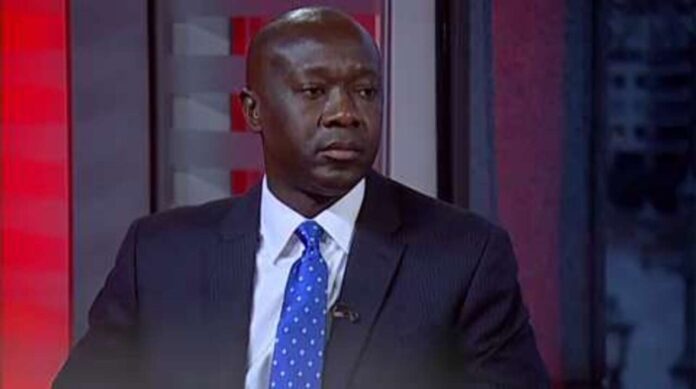MONROVIA – Former Minister of Finance and Gbarpolu County’s newly elected Senator, Amara Mohammed Konneh, has accused the George Weah-led government of indulging in bad macroeconomic management, revealing how the administration’s infamous Harmonization Policy hurt Liberia’s economic growth.
Konneh, who last served the Liberian government as Minister of Finance under the regime of ex-President Ellen Johnson-Sirleaf, recalled that prior to the onslaught unleashed on Liberia by the deadly Ebola Virus Disease, coupled with the drawdown of the United Nations Mission in Liberia (UNMIL), and the adverse impact of the fall in commodity price shocks, all of which he said weakened growth in the economy, the country’s economy grew reaching a peak of 8.7 percent in 2013.
He added that the 8.7 percent growth rate of the country’s economy in 2013 was averaged by 3.0 percent from 2012 to 2017.
However, Konneh doing a comparative analysis between the Sirleaf and Weah administrations regarding growth in the country’s economy, disclosed that under the CDC-led government, the average growth in the last 6 years is 1.7 percent, with the highest level of growth recorded from 2018-23 under the current administration being 5.0 percent in 2021, a mark the ex-Minister of Finance says is well below the peak of 8.7 percent attained in 2013, during the UP-led government’s reign.
Notably, the former Finance Minister admitted that before the COVID outbreak, under Weah, Liberia’s economy grew at 1.2 percent in 2018, but he pointed out that it then contracted by 2.5 percent in peace time in 2019, a contraction Konneh attributes to the poor macroeconomic management and or policy choices made by the Weah administration.
He specifically pointed out the introduction by the retired footballer’s administration of what he termed the flawed Pay Harmonization Policy in the public sector; its adverse impact on civil servants, the financial sector, and domestic investments, as an integral part of the Weah-led government’s poor macroeconomic management and or policy choices.
Konneh divulged that the Weah administration’s Harmonization Policy created a breakdown in the circular flow, thereby harming every sector of the Liberian economy and society, indicating that all that said policy does is weakens the purchasing power of about 75,000 civil servants with an average household of four people, suppresses private consumption, increases default rates in the financial systems, and stifles domestic investments.
“With the Harmonization Policy, civil servants’ purchasing power diminished, the default rate on loans shot up as non-performing loans ratios rose to 17.2 percent in 2019, up from 14.7 percent in 2017; and credit to private sector (i.e., loans for domestic investment) dropped by 6.3 percent year-on-year in 2019, well below 2017 levels,” Konneh emphasized.
Konneh, who is campaigning against Mr. Weah’s re-election, as Liberians go to the polls on 14 November for a second round of voting in the country’s presidential runoff election, chided the Weah regime for introducing the Harmonization Policy, which he said was necessitated to accommodate partisans of the ex-soccer star’s political party, the CDC, after the administration bloated government’s payroll in 2018.
“The CDC Administration increased the public sector wage bill from US$297 million in 2017 to US$322 million within 12 months. Hence, the harmonization of salaries was introduced to slice from “Peter and give to Paul” and NOT necessarily to ensure equal pay,” said Konneh, who said his reliance for such assertion is the recent payroll audit report conducted by the General Auditing Commission (GAC).
The GAC reported that 32,759 employees (about 48.7 percent of civil servants across 90 entities) were earning below the harmonized pay grade, according to Konneh, who emphasized that “this is bad macroeconomic management that demands change,” for which he wants Liberians to on 14 November, oust Weah from power and vote in UP standard bearer and vice standard bearer, Messrs. Joseph N. Boakai and Jeremiah Kpan Koung for President and Vice President respectively.







